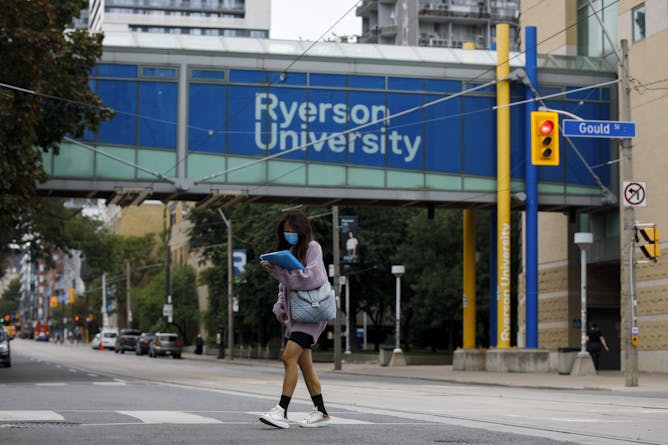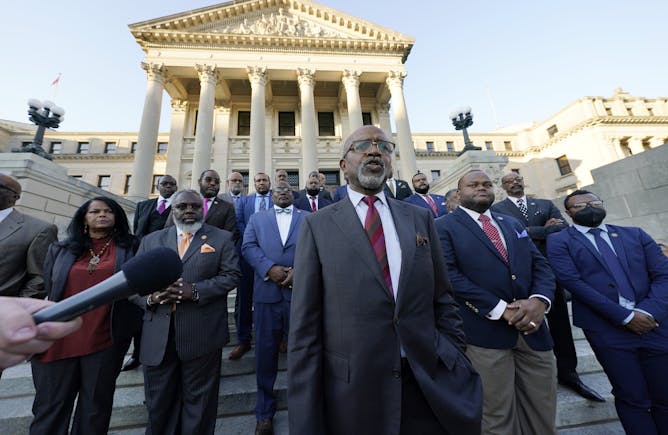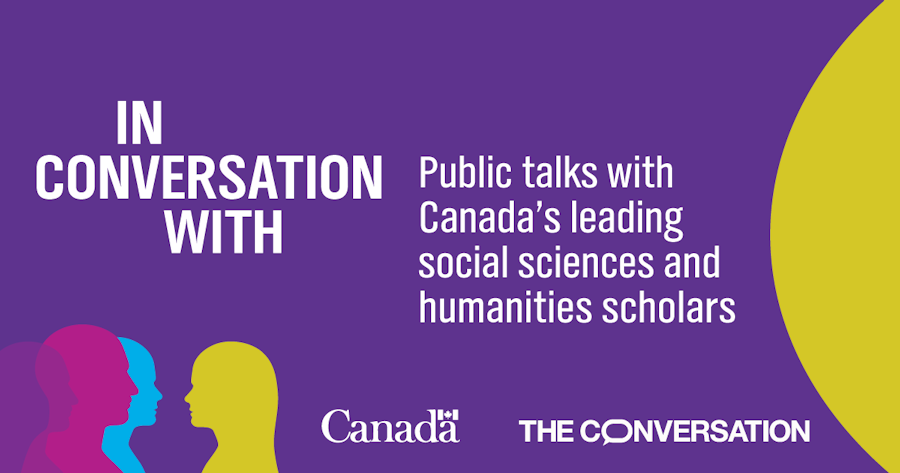|
Earlier this month, U.S. Vice-President Kamala Harris stated that the United States would not be conducting anti-satellite missile testing. This is a significant statement — the escalations of the recent invasion of Ukraine have affected space collaboration, and in late 2021, the Russian military tested an anti-satellite missile.
The effects of conflict in space would be disastrous on a planetary scale. Our increasing reliance on space for services, communications and monitoring means that a space war could affect these global systems with an unimaginable impact on our lives.
Today in The Conversation Canada, Kuan-Wei Chen at McGill University writes about the historical and ongoing commitments to maintaining space as a conflict-free zone. He writes that the U.S. declarations may provide "the momentum for other countries to reaffirm their commitment to explore and use space in a safe, responsible and sustainable manner."
Also today:
|

|
Nehal El-Hadi
Science + Technology Editor
|
|

Avoiding conflict is essential to maintaining space as a global commons, to be used by all.
(Shutterstock)
Kuan-Wei Chen, McGill University
Our reliance on space infrastructure means that conflict in space would have global catastrophic consequences. But a recent declaration by the United States provides hope.
|

With the new name comes a model for other renaming processes in the realm of reconciliation.
THE CANADIAN PRESS/Cole Burston
Dino Sossi, University of Toronto
Incorporating lessons from Ryerson University’s renaming process could help Canadian institutions address colonization.
|

How do we capitalize on COVID-19 initiated change to build better education systems for the future?
(Chris Montgomery/Unsplash)
F. Haider Alvi, Athabasca University; Deborah Hurst, Athabasca University; Janice Thomas, Athabasca University; Martha Cleveland-Innes, Athabasca University
The question for all educators should be: How do we capitalize on COVID-19 initiated change to build better education systems for the future?
|

Apps are designed to encourage desired behaviours, sometimes with perverse consequences for users.
(Shutterstock)
Doug Sarro, University of Toronto
The use of “gamification” in stock trading and other apps raises new legal challenges. Existing legal tools should be adapted to meet these challenges.
|

United States Rep. Robert Johnson, D-Natchez, centre, and other members of the House express their objections to the banning of teaching of Critical Race Theory in Mississippi in March.
(AP Photo/Rogelio V. Solis)
Maïka Sondarjee, L’Université d’Ottawa/University of Ottawa
An analysis of international relations syllabi shows race and gender studies are barely mentioned.
|

How much can governments actually do about rising food prices?
(Shutterstock)
Michael von Massow, University of Guelph
Rising food prices are not an easy fix and we shouldn’t be pretending otherwise.
|
La Conversation Canada
|

Les biais genrés qui s'expriment à travers le vote populaire de Star Académie 2022 illustrent la persistance d'un angle mort sexiste dans nos perceptions de la compétence féminine.
Instagram, @staracademietva
Claudia Raby, Université Laval
Des biais de genre ont semblé orienter le vote populaire à Star Académie 2022. L’influence des doubles standards mène inconsciemment à la sous-évaluation des compétences féminines.
|
Health
|
-
Emily Widnall, University of Bristol; Johnny Downs, King's College London
Data linkage, assessing information from over 113,000 teenagers in South London, addresses important gaps in research on the mental health and socio-economic risk factors for self-harm.
|
|
Politics
|
-
Michael Humphrey, Colorado State University
Analysis of Trump’s post-Twitter communications suggest that the former president has not moderated his messaging style. So what does that mean if he were to go back on Twitter?
|
|
Science + Tech
|
-
Chris Impey, University of Arizona
This year, two groups of astronomers plan to send messages containing information about humans and the location of Earth toward parts of space they think may be home to intelligent life.
|
|
|
|
| |
| |
| |
| |

|
| |
| |
| |
| |
| |
| |
|
|